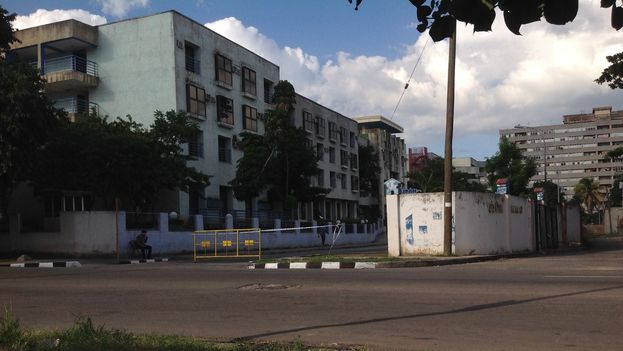
![]() 14ymedio, Generation y, Yoani Sanchez, 14 July 2017 — Wednesday night. The neighborhood of Nuevo Vedado is sliding into the darkness. Catchy music resonates in the Hotel Tulipán where parliamentarians are staying during the current regular session. They dance, drink under the sparkling lights of the disco ball and sing karaoke. They add their voices to a programmed score, the exercise they know how to do best.
14ymedio, Generation y, Yoani Sanchez, 14 July 2017 — Wednesday night. The neighborhood of Nuevo Vedado is sliding into the darkness. Catchy music resonates in the Hotel Tulipán where parliamentarians are staying during the current regular session. They dance, drink under the sparkling lights of the disco ball and sing karaoke. They add their voices to a programmed score, the exercise they know how to do best.
With only two sessions a year, the Cuban legislative body gathers to stuff the population full of dates, figures, promises to keep, and critiques of the mismanagement of bureaucrats and administrators. A monotonous clamor, where every speaker tries to show themselves more “revolutionary” than the last, launching proposals with an exhausting generality or a frightening lack of vision.
Those assembled for this eighth legislature, like their colleagues before them, have as little ability to make decisions as does any ordinary Cuban waiting at the bus stop. They can raise their voice and “talk until they’re blue in the face,” and enumerate the inefficiencies that limit development in their respective districts, but from there to concrete solutions is a long stretch.
On this occasion, the National Assembly has turned its back on pressures that, from different sectors, demand new legislation regarding the electoral system, audiovisual productions, management of the press, same sex marriage and religious freedoms, among others. With so many urgent issues, the deputies have only managed to draft the “Terrestrial Waters Bill.”
Does this mean that they need to meet more often to fix the country’s enormous problems? The question is not only one of the frequency or intensity in the exercise of their functions, but also one of freedom and power. A parliament is not a park bench where you go to find catharsis, nor a showcase to demonstrate ideological fidelity. It should represent the diversity of a society, propose solutions and turn them into laws. Without this, it is just a boring social chinwag.
The parliamentarians will arrive on Friday, the final day of their regular session, in front of the microphones in the Palace of Conventions with the same meekness that they approached the karaoke party to repeat previously scripted choruses. They are going to sing to music chosen by others, move their lips to that voice of real power that emerges from their throats.
